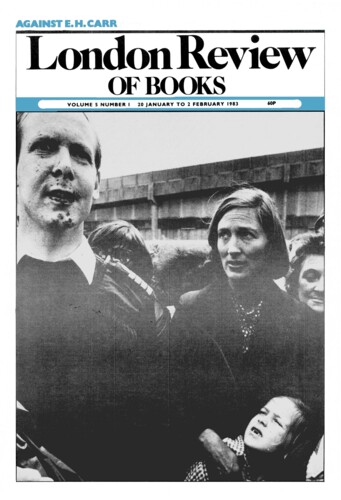Holocaust History
Geoff Eley, 3 March 1983
‘A sacrifice wholly consumed by fire; a whole burnt offering … A complete sacrifice or offering … A sacrifice on a large scale … Complete consumption by fire, or that which is so consumed; complete destruction, esp. of a large number of persons; a great slaughter or massacre’: such is the OED’s definition of the word ‘holocaust’. As always, the etymology discloses a finer nuance of meaning. In their excellent compilation, The Jew in the Modern World (1980), Paul Mendes-Flohr and Jehuda Reinharz point out that the term’s origin is theological. More specifically, it ‘derives from the Septuagint, the Jewish translation of the Hebrew Scripture into Greek from the third century BC, in which holokaustos (“totally burnt”) is the Greek rendering of the Hebrew olah, the burnt sacrificial offering dedicated exclusively to God’. The progression of meanings in the OED reflects a secularisation of usage, so that by the 19th century it denotes simply any example of vast devastation, particularly by fire. A term, in other words, of no particular political or cultural charge.


